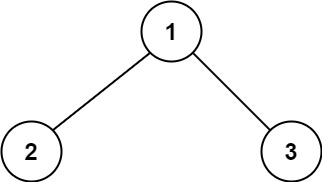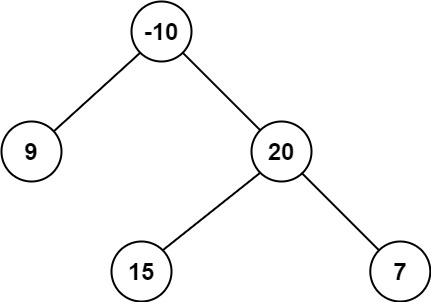LeetCode-in-All
124. Binary Tree Maximum Path Sum
Hard
A path in a binary tree is a sequence of nodes where each pair of adjacent nodes in the sequence has an edge connecting them. A node can only appear in the sequence at most once. Note that the path does not need to pass through the root.
The path sum of a path is the sum of the node’s values in the path.
Given the root of a binary tree, return the maximum path sum of any non-empty path.
Example 1:

Input: root = [1,2,3]
Output: 6
Explanation: The optimal path is 2 -> 1 -> 3 with a path sum of 2 + 1 + 3 = 6.
Example 2:

Input: root = [-10,9,20,null,null,15,7]
Output: 42
Explanation: The optimal path is 15 -> 20 -> 7 with a path sum of 15 + 20 + 7 = 42.
Constraints:
- The number of nodes in the tree is in the range
[1, 3 * 104]. -1000 <= Node.val <= 1000
Solution
# Definition for a binary tree node.
#
# defmodule TreeNode do
# @type t :: %__MODULE__{
# val: integer,
# left: TreeNode.t() | nil,
# right: TreeNode.t() | nil
# }
# defstruct val: 0, left: nil, right: nil
# end
defmodule Solution do
@spec max_path_sum(root :: TreeNode.t | nil) :: integer
def max_path_sum(%TreeNode{val: val, left: nil, right: nil}), do: val
def max_path_sum(root) do
max_path(root, -1001) |> elem(1)
end
def max_path(%TreeNode{val: val, left: left, right: right}, max) do
{lval, lmax} = max_path(left, max)
{rval, rmax} = max_path(right, max)
{
[(lval + val), (rval + val), val] |> Enum.max(),
[max, val, val + lval, val + rval, val + lval + rval, lmax, rmax] |> Enum.max()
}
end
def max_path(nil, max), do: {0, max}
end

